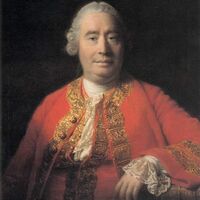If Shakespeare be considered as a MAN born in a rude age and educated in the lowest manner, without any instruction either from the world or from books, he may be regarded as a prodigy; if represented as a POET capable of furnishing a proper entertainment to a refined or intelligent audience, we must abate much of this eulogy. In his compositions, we regret that many irregularities, and even absurdities, should so frequently disfigure the animated and passionated scenes intermixed with them; and, at the same time, we perhaps admire the more those beauties on account of their being surrounded by such deformities. A striking peculiarity of sentiment, adapted to a single character, he frequently hits, as it were, by inspiration; but a reasonable propriety of thought he cannot for any time uphold. Nervous and picturesque expressions as well as descriptions abound in him; but it is in vain we look either for purity or simplicity of diction. His total ignorance of all theatrical art and conduct, however material a defect, yet, as it affects the spectator rather than the reader, we can more easily excuse than that want of taste which often prevails in his productions, and which gives way only by intervals to the irradiations of genius. [....] And there may even remain a suspicion that we overrate, if possible, the greatness of his genius; in the same manner as bodies often appear more gigantic on account of their being disproportioned and misshapen.
